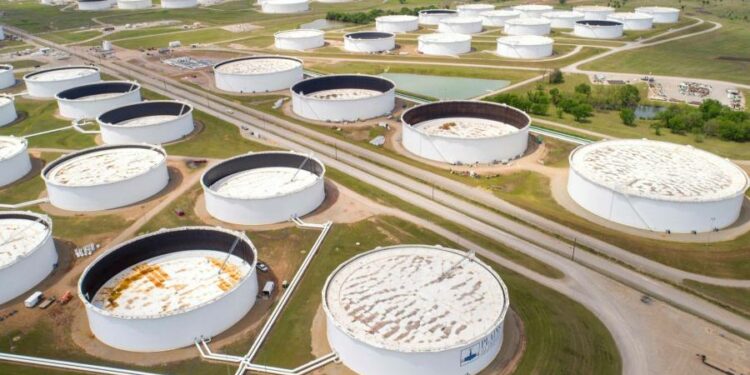The author is director of research and co-founder at Energy Aspects
For some energy watchers, higher prices for natural gas, coal and oil will be “transitory”, to use the language of the US Federal Reserve. They are wrong. High prices are here to stay for years.
The seeds were sown in oil’s golden era between 2010 and 2014 when oil prices averaged above $100. Booming US shale production over that period and predictions of impending peak oil demand have left the market severely short of investment in conventional oil since 2015. Indeed, the number of oilfield discoveries between 2016 and 2020 fell to a record low, while new LNG export projects slowed after a decade of low gas prices caused by a wave of new supply.
Traditionally, higher prices balance the market by encouraging more supply and curbing demand. An inventory and spare-capacity cushion acts as a global shock absorber until higher prices spur production to balance rising demand. But the energy transition is changing the rules of engagement.
So far, the supply response to elevated prices has been muted. Global upstream capital expenditure averaged $320bn-$350bn in 2020 and 2021. This is half the level of 2011-14 and 25 per cent short of what is needed to hold oil production steady at 100m b/d, the level global demand has now surpassed as mobility restrictions ease.
ESG considerations account for much of the decline in capital expenditure by international oil companies in recent years and the investor exodus out of oil and gas markets. It will not end with higher oil and gas prices. Today, investment in fossil fuel is vilified and financing has become sparse as big western banks withdraw. The International Energy Agency is calling for an end to all oil, gas and coal funding if the world is to reach net zero by 2050.
Due to long lead times between investment and supplies, we are yet to see the full impact of this slowdown in spending on conventional oil and gas production. In other words, supplies will continue to lag behind demand for the next few years. This is particularly true as US shale producers are focusing on shareholder returns and preserving cash flow — a significant change from the past 10 years.
But the focus on ESG hasn’t had the same impact on demand. Oil demand — and energy demand in general — is extremely sticky. Fossil fuels accounted for 84 per cent of global energy demand in 2020, unchanged from 1980. The only real change was a slight shift from coal to gas. Renewables are making inroads, but largely in developed economies. From a global perspective, hydrocarbons remain in pole position. Energy demand will continue rising as the world’s population grows and income levels rise.
During the peak of lockdowns last year, oil consumption fell 20 per cent year on year, but it is expected to return to pre-pandemic levels in the second half of 2022. The IEA and OPEC secretariat agree on this timeframe. Anyone who three years ago thought Elon Musk would have made oil obsolete by now must feel a little confused.
The truth is, global demand is responding far more slowly than supply to growing environmental concerns. This means sharply higher prices for fossil fuels — coal prices today are at a record high.
Technological leaps aside, higher prices are the most effective catalyst of changes in demand-side behaviour. After all, there is always a price that ensures demand equals supply. True, this can lead to pain for consumers and prompt panic among governments. Already, China, Germany and the US are designing measures to ease the green energy burden. The US is even considering tapping into its strategic petroleum reserve to ease oil prices at the pump. But keeping oil, gas and electricity prices artificially lower prevents consumers from adjusting their demand patterns and implies a slower shift to green energy.
Shifting capital from hydrocarbon production is crucial for a successful transition. But global emissions will not drop if fossil fuel demand does not decline, and prices will be high so long as demand is high.
So, if governments are serious about climate change, the focus cannot just be on legislation that shifts supply. They must tackle demand. High energy prices, even if unpopular with voters, will be needed if we are to have any chance of meeting the ambitious energy targets set by governments.
Complex debates surround the transition, but there are two certainties: the transition is inflationary and achieving it will require stark trade-offs. Tackling climate change will be costly.











